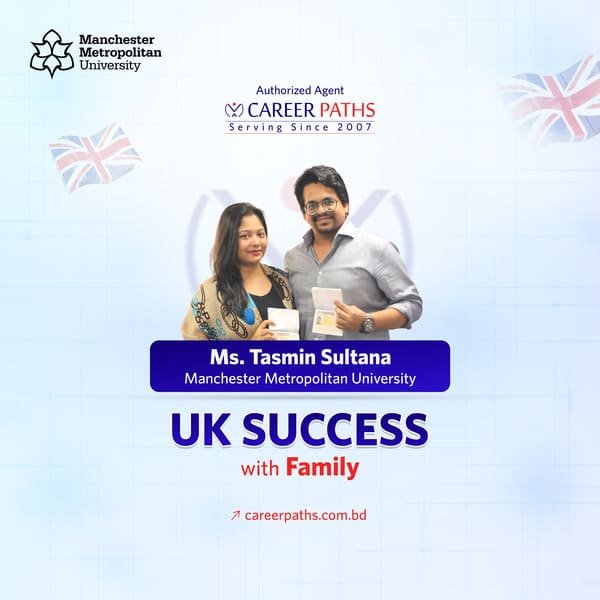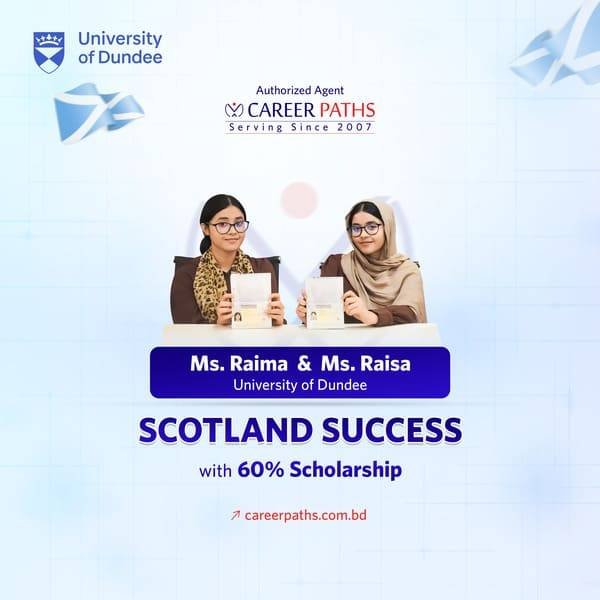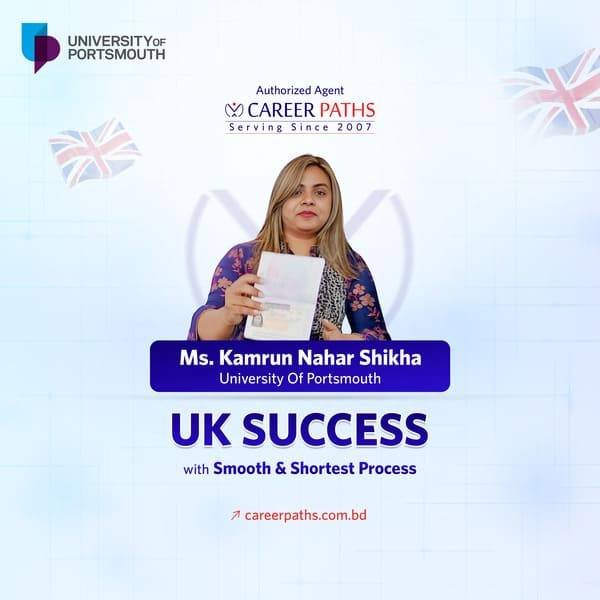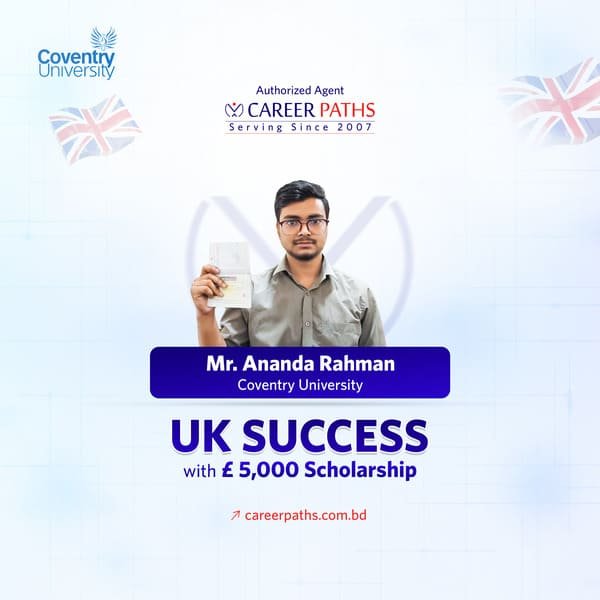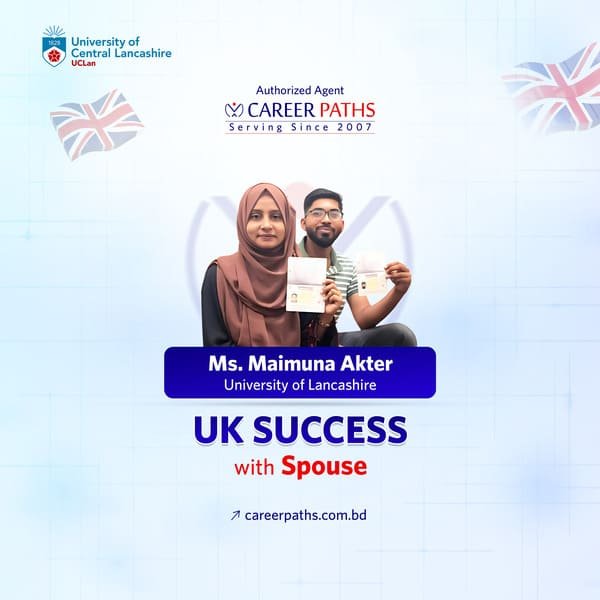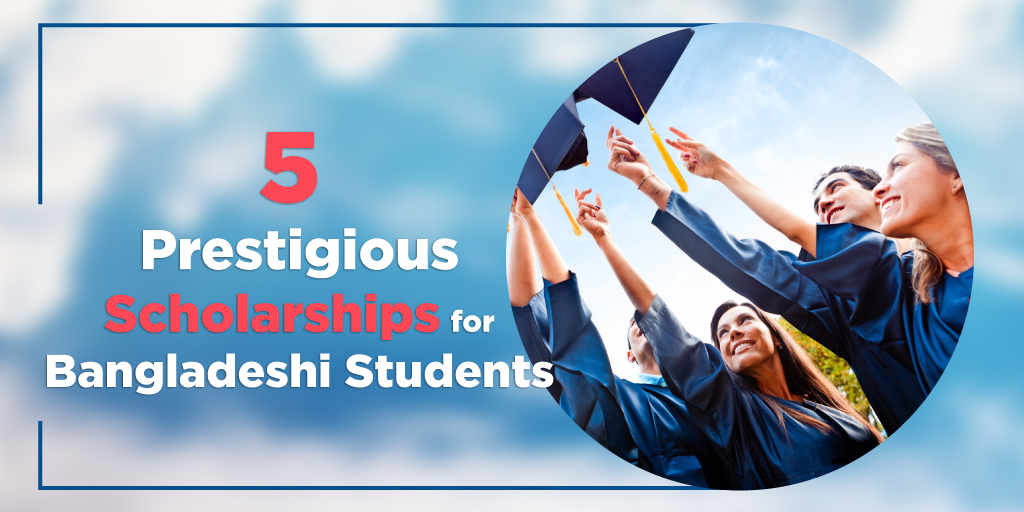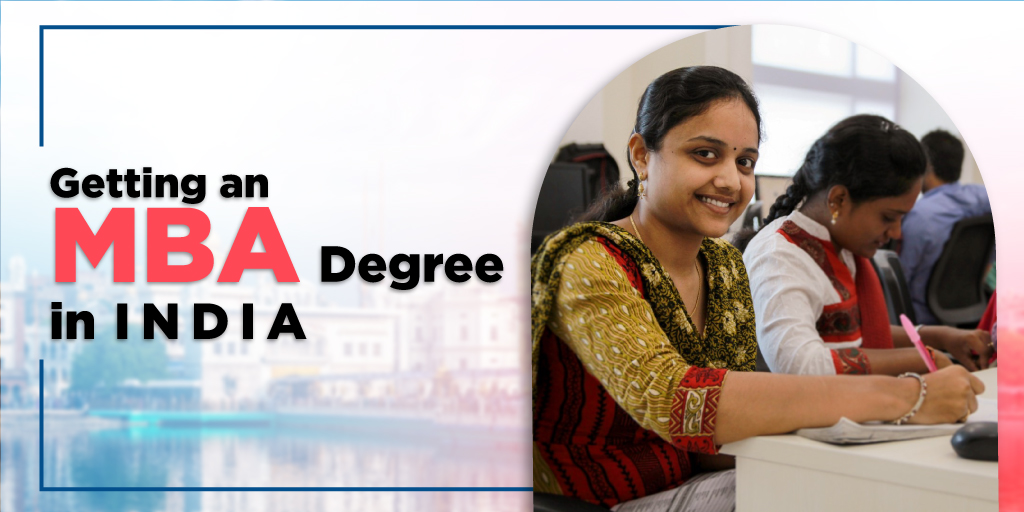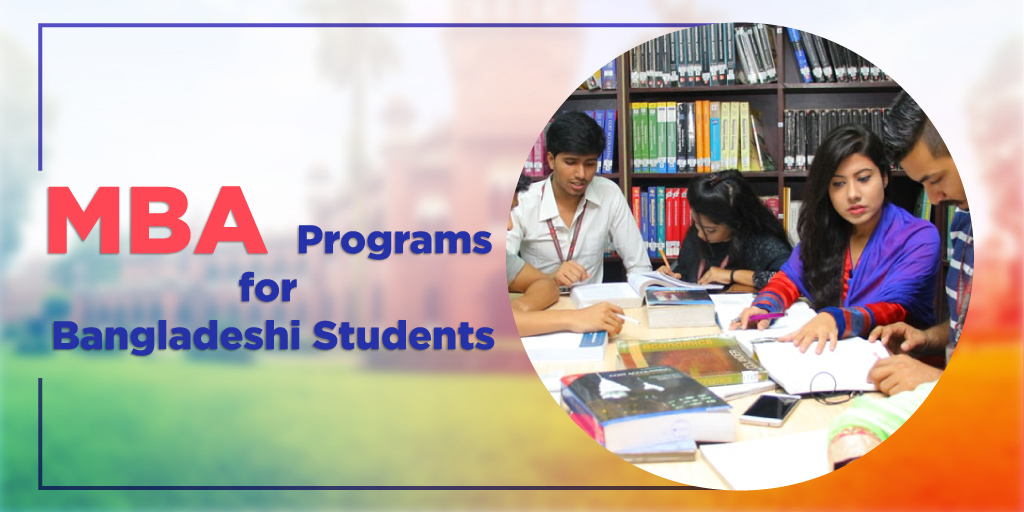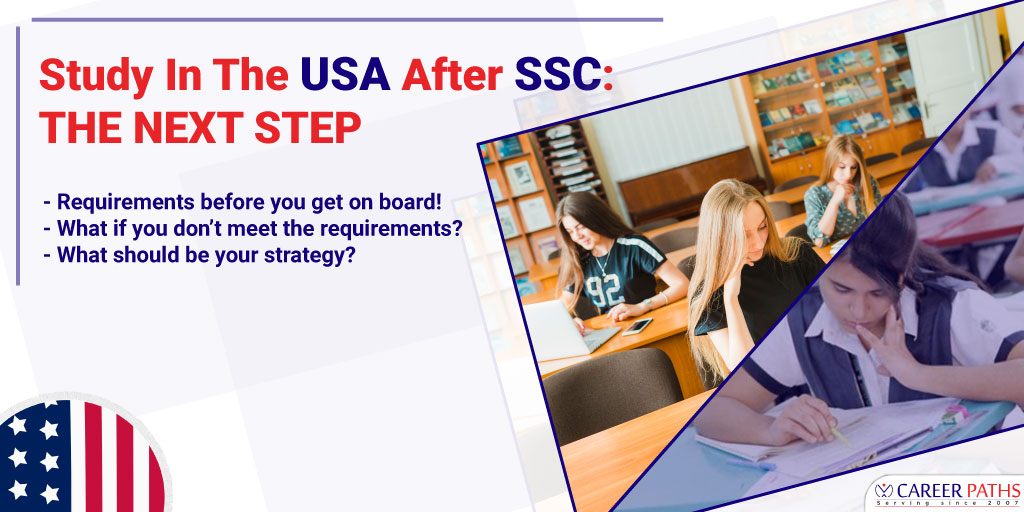
Can you study in the USA after SSC?
Thinking about studying in the USA after completing 10th grade? The answer is a resounding YES! But, here’s the catch – you’ve got to start planning now! Ready to embark on your educational journey? Let’s dive into the details!
5 Second Summary
- Studying in the USA after SSC for Bangladeshi students is a great opportunity
- Opt for an integrated bachelor’s program post-SSC
- The USA offers a rich academic landscape, scholarships, and excellent career prospects.
Encompassing fifty states and boasting a substantial population, the United States of America (USA) is one of the most powerful nations in the world.. Recognized as the United States or simply America, it is situated in North America and includes five major self-governing territories, in addition to various overseas possessions.
Now, studying in the USA for a Bangladeshi is not only a possibility but also an increasingly accessible endeavor, particularly with an abundance of scholarships available. The diverse academic landscape, renowned institutions, and cross-cultural inclusivity make the USA an attractive destination for international students seeking a world-class education, better standard of living, and great career opportunities. Studying in the USA is a dream for each student who wants to utilize his/her caliber and make the most of it in a land of unparalleled opportunities.
Why taking the leap to study in the USA after SSC is a game-changer
Ever wondered why taking the plunge to study in the USA straight after your SSC can be a game-changer? Picture this: you’re not just diving into textbooks; you’re diving into a whole new way of life. From navigating American customs to finding your groove in a US school, and even embracing the challenge of living solo at a tender age – it’s an adventure that molds your character from the get-go.
But it’s not just about survival; it’s about setting the stage for a stellar academic journey. Opting for an integrated bachelor’s program right off the bat lets you tailor your studies to your passion, laying a solid foundation for your career. It’s not just a degree; it’s a strategic move that amps up your CV and opens doors for future master’s programs in the USA.
And here’s the bonus – students with a valid F1 visa can roll up their sleeves for on-campus work, gaining practical skills at the school cafeteria, library, research labs, or admissions offices. Imagine getting hands-on experience that can support your studies, living costs, and so on.
So, thinking of leaping? It’s not just about crossing borders; it’s about breaking barriers and making choices for your academic and professional journey. If you are not already, Start Planning!
Read the Requirements before you get on board!
So, you have finally made the choice and the USA is your destination to further your academics after 10th grade. Great Choice! Now let’s break down the essentials to make that dream a reality. First things first, we’re talking visas. There are a few types, but for most Bangladeshi students, it’s the F-1 Student Visa that opens the doors.
To gear up for the academic pursuit in the USA, you need an indispensable toolkit for the journey. The must-haves include a passport with a minimum 6-month validity, the I-20 form from your selected US university, a well-thought-out visa application, proof of visa application fee payment, a passport-sized photograph, and a bank statement demonstrating financial capacity. Academic records, including a minimum GPA of 3.0, are integral, with some programs necessitating SAT or ACT scores.
Moving forward, let’s talk about language proficiency. Whether it’s IELTS, TOEFL, PTE, or Duolingo, minimum test scores must be met for seamless communication in the United States. As the nation takes on international students with a holistic review, it’s good to have some extracurricular activities experience as an added advantage.
Start early, stay organized, and you’ll be weaving through your US study checklist like a pro. Your future in the USA awaits.
What if you don’t meet the requirements?
Key Takeaways
- Foundation courses align academics, easing the transition to US university life.
- US universities may consider skills and motivation, offering flexibility for students
You know, diving into university life after SSC can be a bit trickier than we initially thought. No work experience, no SATs, and sometimes, our academic results don’t perfectly align with the system in our dream study destination. But hey, universities abroad have a cool solution – one-year foundation courses. These courses sort of bridge the gap and get us in sync with the local education system.
Now, picking a pre-bachelor’s makes the leap to a full-fledged Bachelor’s program way smoother. Plus, it helps dodge that cultural gap and teaching method confusion. When it comes to applying for foundation courses in the USA, a minimum English proficiency test score is required. This is to ensure that you have no communication gaps in class and you nail those assignments.
Now, let’s talk about grades. Worried your high school grades might not cut? That’s ok, some universities in the US can be flexible with entry requirements. Show off your skills or experience – think work internships, volunteering in your academic area, or acing that motivation letter. Short-course certificates can also be an added advantage.
And here’s a bonus – some universities combine foundation studies with your undergraduate degree. Four years instead of three, and you jump right into that Bachelor’s degree after the introductory foundation year. Although foundation courses and pre-bachelors/pre-masters don’t guarantee Ivy League acceptance, they seriously boost your odds. So, do a bit of homework, and find a study course that levels with your level, interests, and goals.
What should be your strategy?
Studying in the USA right after completing SSC is a commendable aspiration that demands careful planning and strategic execution. As a prospective international student, the process may seem intricate, given the absence of work experience, the potential lack of SAT scores, and the nuanced differences in academic systems. However, with a well-thought-out strategy, you can tackle the hurdles with a solid mindset. Let’s dive into the details of the strategic approach that you should be taking:
Research and Identify Interests
Begin by identifying your academic interests and potential career paths. Understand the field you wish to pursue and the specific disciplines you’re interested in.
Explore Universities and Programs
Research universities in the USA that offer programs aligned with your interests. Consider factors like rankings, faculty expertise, campus facilities, and available resources.
Understand Admission Requirements
Thoroughly understand the admission requirements of the selected universities. Take note of prerequisites, language proficiency exams (TOEFL, IELTS), and any specific tests (SAT, ACT) required for your chosen field.
Start Language Proficiency Preparation
If required, start preparing for language proficiency exams early. Enroll in language courses or utilize online resources to enhance your English language skills.
Consider Foundation Programs
Explore foundation programs offered by universities. These programs can help bridge educational gaps and provide a smoother transition into the American academic system.
Build a Strong Academic Record
Focus on achieving a strong academic record in your SSC. This will be a crucial component of your application. High grades demonstrate your academic capability.
Engage in Extracurricular Activities
Participate in extracurricular activities relevant to your field of interest. This could include internships, volunteering, or joining clubs and organizations. These experiences enhance your overall profile.
Prepare for Standardized Tests (if required)
If your chosen program requires standardized tests like SAT or ACT, begin preparations well in advance. Consider taking preparatory courses or using online resources to familiarize yourself with the test format.
Prepare a Stellar Personal Statement
Craft a compelling personal statement highlighting your academic and extracurricular achievements, career aspirations, and why you want to pursue higher education in the USA.
Secure Letters of Recommendation
Request letters of recommendation from teachers or professionals who know you well. These letters should speak to your academic abilities and potential for success in higher education.
Financial Planning
Research and plan for the financial aspects of studying in the USA. Explore scholarship opportunities, understand tuition fees, and living expenses, and budget accordingly.
Submit Applications
Once thoroughly prepared, submit your applications to the chosen universities. Be mindful of application deadlines and ensure all required documents are included.
Prepare for Visa Application
Upon receiving admission offers, start preparing for the student visa application. Fulfill all requirements, including financial documentation and health examinations.
Attend Pre-Departure Orientations
Participate in pre-departure orientations provided by the university or educational consultants. These sessions offer valuable information about adjusting to life in the USA.
Stay Informed and Flexible
Keep abreast of any updates or changes in admission processes and visa regulations. Stay flexible and be ready to adapt your plans as needed.
FAQs
Can students from Bangladesh study in the USA after completing SSC?
Yes, students from Bangladesh can pursue higher education in the USA after completing SSC.
What are the key benefits of studying in the USA as a Bangladeshi student?
Studying in the USA offers diverse academic opportunities, exposure to global education standards, and potential career advancement.
How does the F1 visa facilitate studying in the USA for international students?
The F1 visa is essential for international students, allowing them to study in the USA and providing opportunities for on-campus work.
Are foundation courses necessary for students planning to study in the USA after SSC?
Foundation courses can be beneficial for students, bridging educational gaps and ensuring a smoother transition into a full-fledged Bachelor’s program.
Can flexible entry requirements be availed if high school grades are not ideal?
Some universities may offer flexibility in entry requirements, considering skills, experience, and a well-presented motivation letter.
How do pre-bachelor’s programs work, and why are they recommended?
Pre-Bachelor’s programs integrate foundation studies with undergraduate degrees, providing a comprehensive academic base and easing the transition for students.
What role do language proficiency tests play in the admission process for US universities?
Language proficiency tests like IELTS, TOEFL, PTE, or Duolingo are essential to ensure effective communication and academic success in the USA.
Can on-campus work opportunities support students financially while studying in the USA?
Students with a valid F1 visa can engage in on-campus work, contributing to their living expenses and gaining practical experience.
How can students secure financial support for studying in the USA?
Researching and applying for scholarships, understanding tuition fees, and budgeting accordingly are crucial steps for financial planning.
What is the recommended strategy for international students planning to study in the USA after SSC?
The strategy involves thorough research, identifying academic interests, understanding admission requirements, language proficiency preparation, engaging in extracurricular activities, and careful financial planning. It’s a systematic approach for a successful academic journey in the USA.

